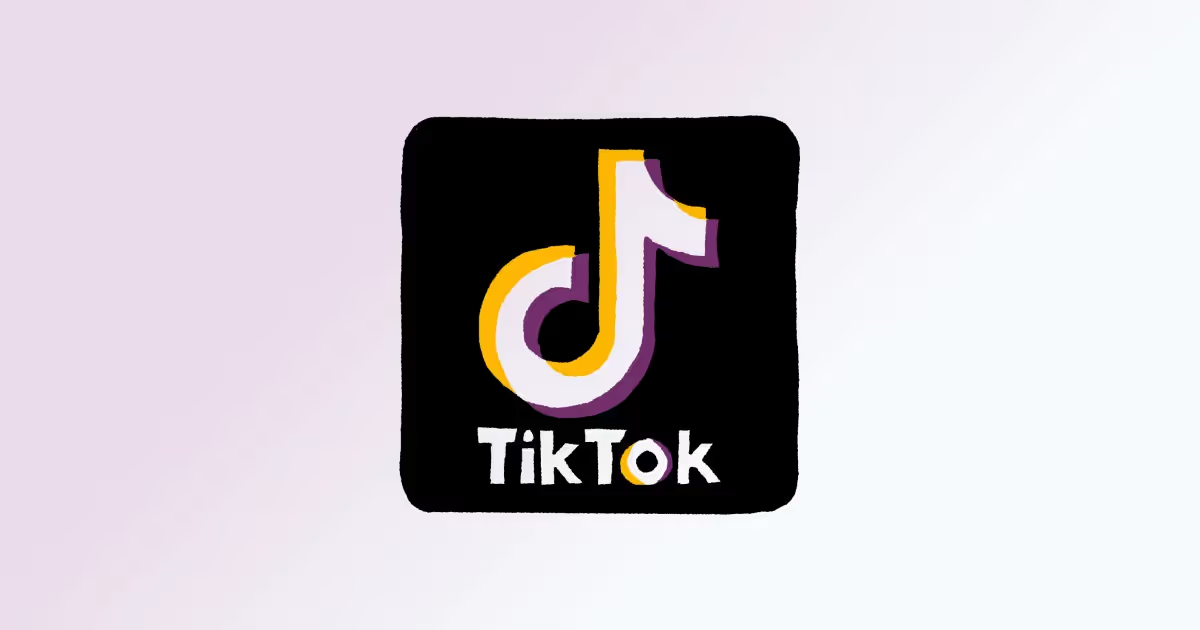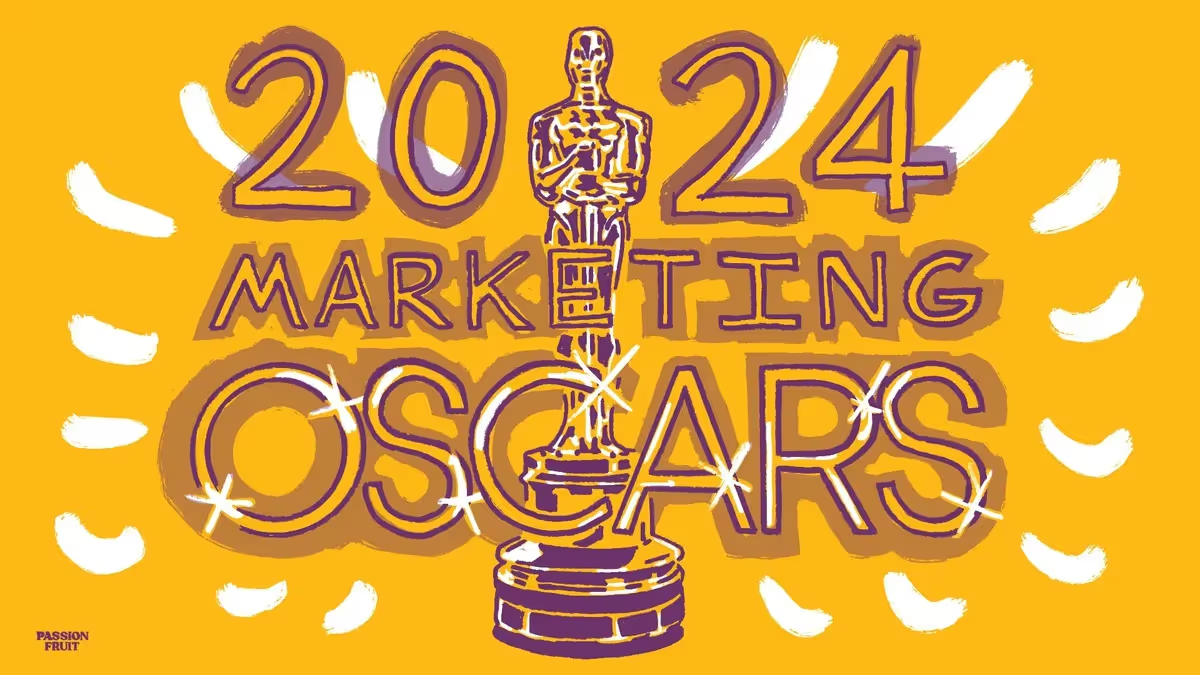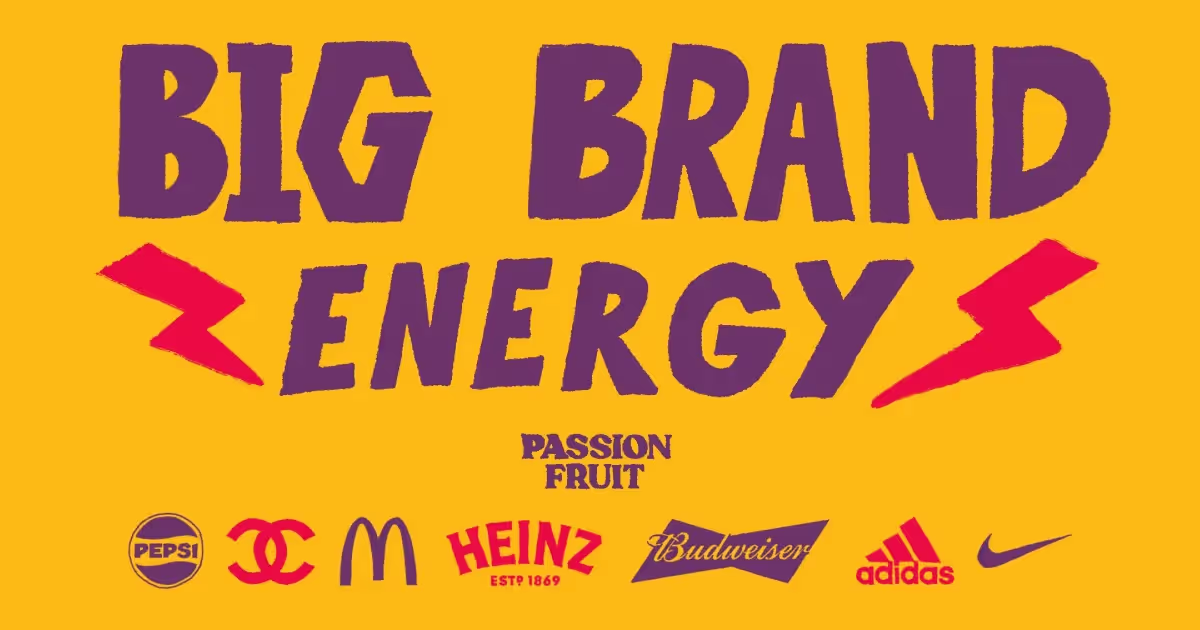Alongside our weekly perspective on Thursdays which looks at the value of great startup and SME marketing, each Tuesday we will be releasing an exclusive interview with a leading practioner in this space. First up is Giacomo Zacchia, Strategy Lead at Night Media. Night Media is a digital talent management company and creative outpost for the largest creators on the internet. Collectively, its talent - including Mr Beast - earn 2.2bn YouTube views a month, and through its $20m venture arm Night Media are funding seed stage startups across consumer, gaming, and the creator economy.
We discussed what online creators are looking for in brands they partner with, the convergence of personal brands and company brands, what sectors the Night Media Ventures team are focussed on, and so much more.
What is something that you think is going to be big that not a lot of people are talking about right now?
If I had to bet on the philosophy of Night Media, it would be creator-led businesses, or at least co-creator led businesses. You look at the history of institutions as a whole, and you have massive institutions like countries, and then things start to shift over to the corporation being a centre of formation, power and how resources are allocated etc. And now we're getting into the age of the individual, for better or worse.
There are strengths to being a creator led business. It's powerful because of how quickly you can move, the distribution that you hold, and the personal connection you have. But there's also more exposure on that front. You know, when people get mad at your business, they get mad at you - they don't really see a distinction between the two. It's like the sword of Damocles - it looms over your head, but at the end of the day, it's double sided, and can have a lot of benefit for you.
It's something we've spoken about a lot; this convergence between personal brands and company brands, which really don't feel that separate. And with Night Media, a lot of the individual brands of your talent are now company brands in and of their own right?
Absolutely. And the traditional marketing agency can't handle this proposition particularly well because they're used to running a funnel and approaching everything the same way. You need someone who can be specific, be dictated to by that person's brand and understand the implications of that. Increasingly we find the best players need to be flexible. Going off this theory that it's becoming increasingly individualized, what can make it hard to work is if the person working with you isn't nimble themselves, because a strategy can change very quickly.
Do you see any company aside from ours that help you to enable or facilitate this?
To be honest, not enough. The closest we get to it is a venture capital firm, or a startup incubator. A lot of those venture capitalists, just from having done business for so long, play the intermediary connector. But that's not their business, and they don't run it particularly professionally. What I find is there's really no middle ground, and the middle ground is what we're looking for.
We have these people who can dump us a bunch of low-level people. Then we have these agencies we can pay $50,000 a week, and then pray that initial product they get us is on-the-money, because if it's not, we've spent the money. The middle ground is hard to find. We find we have to rely on our connections, versus having a reliable intermediary we can go to.
One of the trends accelerating this is the decision to stop just being "talent". You're seeing a lot of people say, "I want to be independent; I can actually monetize what I do, or leverage what I do more broadly, and be more of a master of my own destiny." It feels like it's happened so quickly, and the infrastructure hasn't really caught up yet?
You're right. I think you're going to see the replication of the startup ecosystem that’s on the tech side, on this creator side. Obviously with a few key differences, such as the fact that these are people not companies, and they have their brand which is so much more personal to them. If you’re a creator, that’s difficult: your competitive advantage is also what keeps you up at night.
It might be a good time to delve into our next question: Don't make this mistake...?
Don't make the mistake of being afraid of making mistakes, which is such a cliché but on the creator side we move so fast that everything's just calculated risk assessment. Usually it's a case of, we want to hit this timeline, how much risk are we willing to bear? Have we thought through the backstops to mitigate those risks? You launch Beast Burger incredibly quickly, so it's all about the moment you need to move this way or that way. Risk is a very good thing, being reckless is not. But you can't avoid mistakes, so be bullish. Like a surfing maverick, if you're not getting on the board and getting out there, because you think it might crash on you in a bad way, you're missing the wave. You know it might go wrong, and you've trained for it, and you're ready to hold your breath for three minutes or whatever it might be.
When you started Beast Burger, what waves or trends did you see that it was tapping into?
To be honest Reed, the CEO of Night Media, is the best person to answer that. He has a podcast called Creator Economics, which I recommend anyone who's interested in this space, and he has a good breakdown of exactly what the thought process was and how it came to be. On our side, it’s this crazy thing of throwing out a million ideas, and then filtering down. It's always a question of execution. We saw this opportunity and we thought that if we can make it happen, it's a no brainer. And then you start pushing the ball forward. Some of those balls make it halfway uphill, and they roll back down, and others make it over the precipice and gain a lot of steam. In the same way a YouTuber works, you're intentional about coming up with a lot of ideas but what you're ultimately able to make is so often dictated by the reality of what you can execute on.
I get the sense that lots of good ideas float around, but the more executional layer is what counts, and so the value of the accompanying team or the group behind the creator brand has skyrocketed. Night Media has brought over a VP from Bessemer Ventures to lead your own venture division, correct?
Correct, Ben Mathews. And yes - the surrounding team has become so important. When you look at traditional talent agencies, these people who are optimized to be transactional and close deals, I'm not saying they're incapable of doing things a new way, but it's hard to teach an old dog new tricks. To build your own creator business, a talent agent can be immensely useful in doing that, but they're not going to be the operator. It's not like you can take an agent, and start building up a company that's ready for a seed round of financing, or a Series A round of financing.
To build a company, you need to be thinking about how to build it up, ramp it, scale it; all of these things. And a traditional talent agency has just never thought about that. They've been on the other side of the coin for so long, that their thought process is how do we immediately transact on that value we created. It's difficult for them to take the long-term play when there isn't a real value assigned to it. And so, it's a complete rethink of the way people have been doing business. These aren't template plays anymore. In the same way a traditional marketing agency plugs into a traditional business, they know what they need to deliver, and they do a good job of it. Traditional talent agencies look at a traditional client, knowing they can lock in these deals, and they go with it. We're not in that business. We think about how we create long standing value? And what are the implications of doing so?
Your commercial model is going to dictate your behaviour and trying to push against that is just always going to be a losing battle.
A lot of companies are trying to rework and it's difficult because it's a question of cannibalization. It's a question of culture. Do the top dogs really want to do it when they've been making so much money doing things the old way?
Do you think the simple commercial plays are going to die out?
If you're fortunate enough to be a creator who can dictate those terms you will increasingly go that way. If you're not that type of creator, you're going to be subject to the micro influencer model of someone running a funnel. They're not going to negotiate a contract with you, because they don't even see it being worthwhile to pay a lawyer to do that. To your initial question, what a lot of creators sometimes miss is you just you need to stay on brand, you need to protect your brand. You need to care about who you are as a person and your connection to your community, because that's your real long-term value.
Too often people take a deal because the money's good, versus thinking of a long-term partnership. For us the best partnerships have been the ones that repeat. Maybe the money isn't so great upfront, but then you end up doing 19 deals with them. That's always the best because a creator is a person at the end of the day, and the transaction is always going to be that much more personal because of it.
It strikes me that when doing partnerships, you're going to find it easier if upfront if you really define what it is that you're about. That makes your decision making so much more straightforward.
The best partnerships for us are when you're talking to someone and the contract is a formality, rather than a point of negotiation. When you can transcend to the point of "this partnership is what we were already intending on doing", those relationships often convert, like you're saying, into a long-term play where there's real generated value.
That's a good segue into the next question, which is, name a person or company that you're admiring from afar, maybe who's displaying some of these attributes?
I'll give Night Media clients, but not the one people would expect, because the easy one is obviously Mr. Beast. One is Moriah Elizabeth, and the other is Guga Foods. They're two incredibly good examples of people who are so true to their brand. I don't think they're people who are ever chasing the wave of "oh, this is a trend, I need to do." They'll do it if it's natural, but they don't ever sacrifice their brand. For that they're two creators I admire so much: a lot of our other creators do that too, but they're very close to the top. They're on it when it comes to understanding how their internal business works; they think about their brand like a business. They also think about their brand as a representation of their own character as a person. When you can combine those three things (business + brand + personal character), you have something really special.
Night Media now gets a perspective from both sides of the coin: from the creator's viewpoint, and then from the Night Media ventures arm, you're looking down on these creators as businesses with more discerning eye. Thinking about the investments you've made in companies like Backbone, Lolly and Italic, what are you looking for in portfolio companies?
With Ben on board - who is fantastic - we're becoming increasingly intelligent about our investment strategy, because he's someone who's done it at the highest level for so long. Prior to that, we were always dialled in to social media; we get it better than anyone else. We have a fantastic roster of clients whose brains we can pick, so that's the number one sector.
The two questions we ask are: one, is this a good deal? And Ben is the best at evaluating that. And he also has an incredibly good mind for the second one, which is: can Night Media add real value? Can we help derisk that proposition? Can our advisory services and the space that we're connected to make that relationship all the more obvious? That's the number one thing - connection - because we're interested in being more than the traditional partner. My opinion about money, and VCs in general, is that everyone's cash is as green as the next guy's. And it's so how do you differentiate yourself beyond that?
It's such a ripe opportunity for you and it's great to see to see it a really being taken advantage of. From where you are now, what's the one thing you'd wish you'd known when you started out?
I wouldn't say I didn't know this, but I'd say it's so important to emphasize that talent is talent. You need to understand that if you're building a business around a creator: your obligations to the creator are critically important. I'm so interested to see the crop of CEOs that come up and start leading these creator-led businesses, because I think your traditional CEO is always going to say, "this is the business and we need to do this, and we need to do that."
People who are in the creator world, the more that they can understand that it's called the creator world for a reason, the less friction they're going to face. Again, in alignment with that transition away from the traditional institution, where you could bull-dog your way around, not caring around about the talent... If you're building a business with creators, that relationship needs to be front and centre.
It's cool to think that the current group of CEOs or leaders out there maybe aren't equipped to answer some of the questions that people have nowadays. There are all these new approaches generating questions which don't necessarily have a lot of answers, and people are exploring that terrain which is uncharted. They're just figuring out as long they go, which to your point earlier, is the core of the creator ethos.
Totally, otherwise, you're just going to miss the wave. If you're stuck on the shore, you're missing out on all the fun.
One person who comes to mind is Anthony Saleh. He's blown up recently, because he's the guy that's advised on lots of these great investments like Nas and other people have made. You wouldn't necessarily have this guy down as a mogul but, as you say, the environment in which we're all operating now has shifted so much, and the kinds of people needed to kind of lead are looking a bit different.
I could see a lot of great CEOs coming from the manager world as a result, because it's exactly that skill-set we've spoken about. You need to be able to manage these relationships.
We've got one last question, what's one resource, movie, podcast, book or anything that you'd recommend everyone read, listen to, watch etc.?
The one I want to shout out again is our CEO’s podcast: Creator Economics. If you're looking for a good primer into the industry, there's nothing better. I talked to my friends who studied Entertainment and New Media at some great, prestigious college and, candidly, you're going know way more listening to Reed's stuff for five hours.
I do a lot of the contract negotiations for Night Media and the way contracts look six months ago compared to the way they look now... Just how that language is evolving... I wouldn't waste four years in school!
Lightly edited and condensed for clarity.







